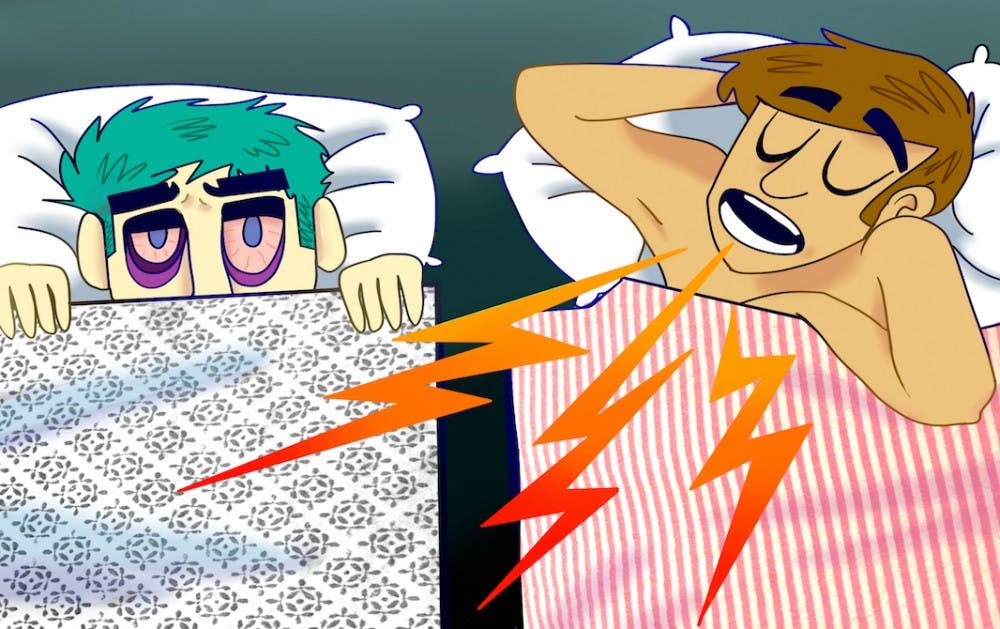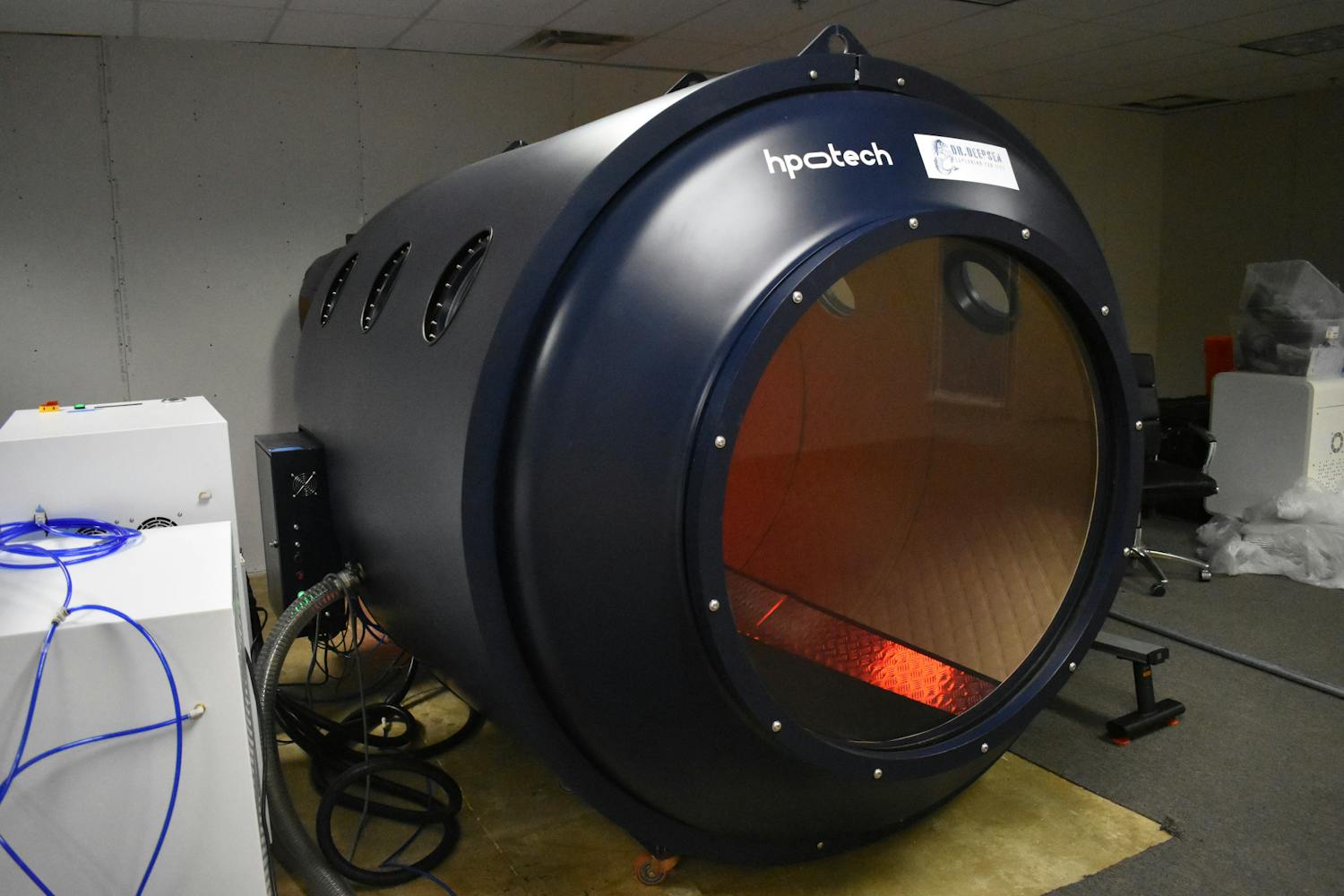When Destiny Barajas, a sophomore studying informatics, heard her roommate cry out in her sleep, she was struck with fear and concern towards the night terror episode.
“All of a sudden I hear screaming coming from my roommate's room … I (started) freaking out cause I didn’t know if I should go in there or disrupt her," Barajas said. “I didn’t know what was going on."
It turns out that tossing and turning, sleep walking and occasional sleep talking aren’t all that uncommon among college students.
A study by the National Institute of Health shows that 60 percent of the college student population experiences poor sleep quality and 7.7 percent meet the qualifications of having an insomnia disorder.
Megan Petrov, an assistant professor in the College of Nursing and Health Innovation, said that students tend to be prone to insomnia and other sleeping disorder symptoms such as daytime sleepiness, abnormal sleep patterns, fatigue, difficulty concentrating and complaints of low energy.
“We do tend to see delayed sleep phase syndrome … more commonly in adolescence and young adulthood than in any other portion of a lifetime," Petrov said. “If sleep is not restorative, there might be an underlying cause of that.”
Petrov said strained relationships and the daily culture of college life are stressors that can act as triggers for these disorders.
Leaving home, having less parental restrictions, making poor food choices and partaking in college activities can all be stressful for some more than others, Petrov said.
Deputy Medical Director of ASU Health Services Stanford Ho and other internal medicine physicians are recommending that students get seven to eight hours of sleep routinely, remove distractions from their bedtime routine and keep good sleep hygiene to try and counteract the inevitable stresses that college life can put on a student's sleep schedule.
Good sleep hygiene includes limiting the duration naps, avoiding stimulants like caffeinated products late in the day and exercising daily, according to the National Sleep Foundation.
For students suffering from symptoms of common and severe sleep disorders, there are resources on and around campus to help.
“If a student is doing everything correct in terms of sleep hygiene, then we can do blood tests and find out, ‘do you have a thyroid condition? Is it something hormonal? Do you have a mental psychiatric issue?’" Ho said. "Other things would be neurological sleep conditions – we check if there is anything physiological and then evaluate mental health.”
He also said that ASU Health Services can connect students with resources if their symptoms cannot be treated by ASU.
"If we can’t take care of the specific thing by ourselves, we will connect you with a specialist such as Mayo Clinic or another community provider," Ho said.
More severely affected students who are sent to the Center for Sleep Medicine at Mayo Clinic can be given a sleep test, have their oxygen levels checked and more, according to Ho.
According to Ho, Health Services has listened to feedback from students and made some changes to be more visible and accessible to the student population.
"We have increased our hours at the request of students for more availability," he said. “We have integrated our mental health services ... and added a neurology clinic. Mayo Clinic Neurology, which handles sleep issues, comes here one day a week."
ASU Wellness has introduced a new digital platform called TAO Connect to help students overcome anger, rejection, depression, stress and other tolling factors that may affect them.
The program is a self-paced system aimed at guiding students through anxious thoughts and strained relationships and is available to students free of charge, 24 hours a day, entirely online.
Ho said this program could be a useful tool for students who experience some form of sleep disorder.
For students like Barajas, this information comes as a relief, knowing that her roommate and other students afflicted with sleeping disorders and their side effects have access to help.
Reach the reporter at mshrikan@asu.edu and follow @MayaShrikant on Twitter.
Like The State Press on Facebook and follow @statepress on Twitter.




